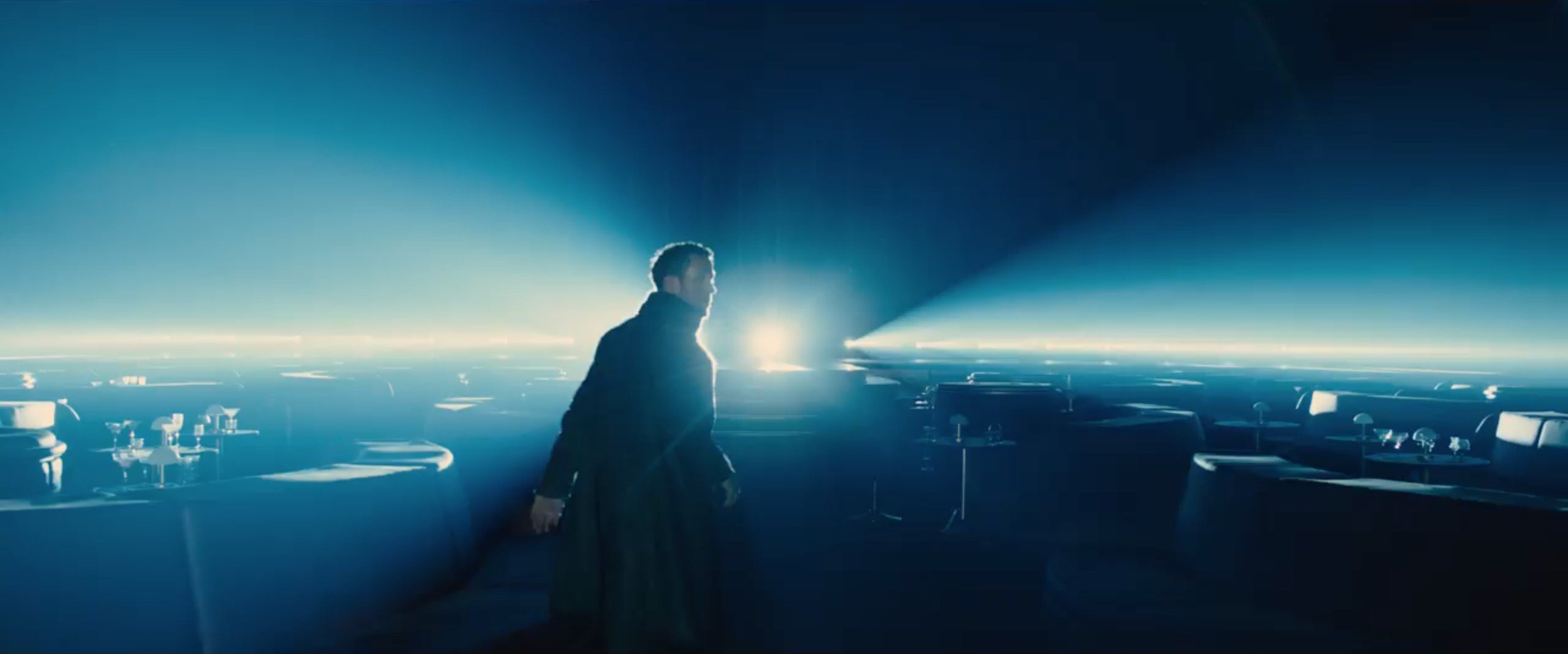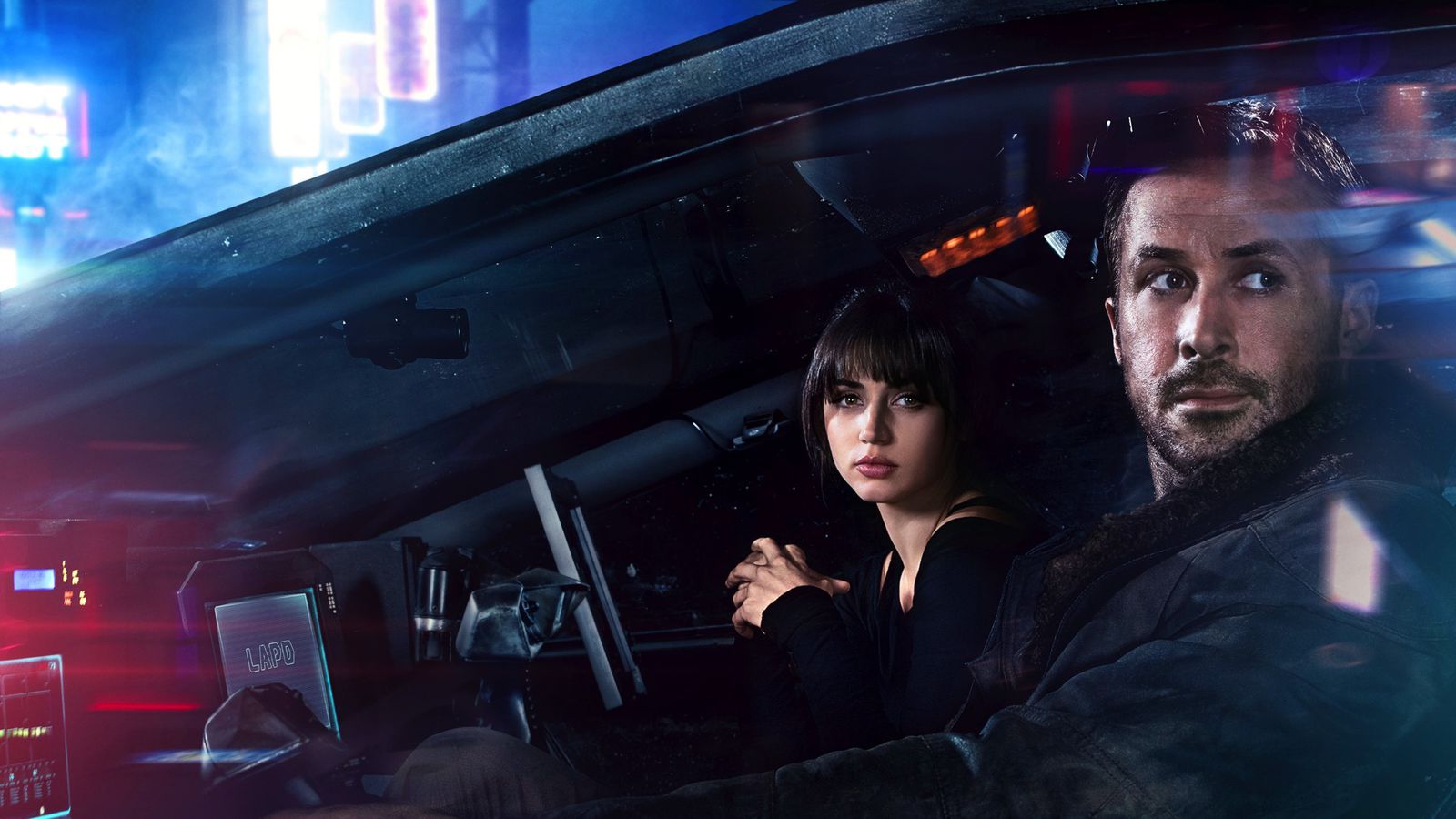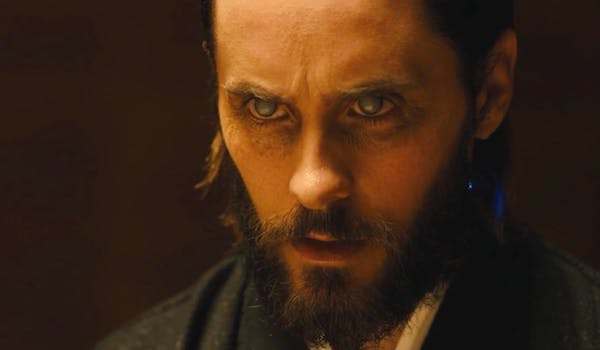4. The Transcendent Arc of K

The original “Blade Runner” was the story of Rick Deckard, a deeply flawed human being who learns to appreciate life. “Blade Runner 2049” is the story of K, a replicant who was resigned to his slave position, who by the end of the film, regains his autonomy- and earns his human soul. K is wonderfully portrayed by Ryan Gosling. Gosling is famous and often satirized for his monotone expressions, yet beneath his stony features, there was angst and we can see Gosling use this to the best of his abilities in “Blade Runner 2049.”
At the end of “Blade Runner” (the Final Cut, that is) Deckard ponders whether or not he is a replicant after finding an origami of a unicorn in his apartment. His partner Gaff (played by Edward James Olmos who makes a welcome cameo in the sequel) would make origamis based on either the memory or dreams of runaway replicants, which signifies its artificiality.
K begins to ponder whether or not his supposedly implanted memories are real, and even begins to muse whether or not he’s the product of a natural replicant birth. He uncovers instead that he was merely a pawn of a larger conspiracy; his implanted memories were not his but belonged to Anna Steline (Carla Juri), the real product of a natural birth and the promise of a future for replicants. After being beaten and left for dead and having discovered that he’s not the chosen one, K is confronted with a giant hologram of the women he loved, an artificial intelligence by the name of Joi.
There is a question whether or not Joi gained transience or whether she was just another product of her program – but does that matter? Aren’t we victims of a neurological programming either? Does the life of Joi become any less valuable because of this? K is reminded of her humanity, of her goodness and love and he honours her memory, and those replicants who died for the right cause by fighting for Deckard’s life. He becomes mortally wounded in the process but he manages to reunite Deckard with his daughter. Before Deckard meets his daughter, he asks him why he did all of this. The answer is very simple: to die for the right cause is the most human thing we can do.
The last time we see him we are reminded of the brief but incredibly life of Batty, who died giving us one of the most beautiful monologues as he perished in the rain. K just lies down, looks up into the snow, enjoying his last moment on earth, satisfied, knowing that he made his seemingly insignificant life something valuable and worthwhile.
3. Retaining the Mystery: A Sequel to an Immortal Classic That is Equal to The Original

The question regarding Deckard’s humanity has mesmerized many fans and even the people involved with the original film – Ford says Deckard’s human, Ridley Scott says he’s a replicant. We all wondered whether or not Villeneuve would reveal the answer in the sequel. At first, since Deckard was allowed to reach Ford’s age, one might gather that he’s human; replicants usually have such a limited lifespan, but the film instead retains this mystery, not even delving into the question but hinting that it might be both.
This is evident in Deckard’s conversation with Wallace, where Wallace muses that Deckard’s affection for Rachael might have been programmed or mathematically calculated. If there’s one character that would know the answer it would be Gaff but he doesn’t answer the question either. As K questions Gaff about Deckard, it seems that Gaff knows more than he lets on – he also creates an origami sheep in this very scene, a loving ode to the original novel “Do Androids Dream of Electric Sheep?”
Villeneuve wanted “Blade Runner 2049” to be a satisfying sequel for all versions of the original “Blade Runner.” The mystery should therefore remain intact. And as Deckard states as reaction Wallace’s musings “I know what’s real.” It doesn’t matter whether he was programmed to fall for Rachael. Deckard knows their love for each other was real.
The affectionate reactions, not just from critics but from the original’s hardcore fans, indicates that the sequel might have done the seemingly impossible – that it might have swayed many of them to consider the sequel to be superior to the original. It’s too early to tell. If it isn’t better, it might be equal in its heart and soul. The fact that people are having this discussion tells you that “Blade Runner 2049” is something very special indeed.
2. The Joy of Love: A Beautiful Love Story

It’s incredibly frustrating seeing The Guardian publish such drivel like the one concerning the supposed misogyny in “Blade Runner 2049.” It just gives credence to the fact that movies like “Blade Runner 2049” won’t come very often because even for those who do have the attention span for it, it is quickly dismissed because the people won’t give the film the intellectual thought it deserves. There is nothing misogynistic about the film, and though one can conclude that such articles are cynical clickbait fodder, there are people who take this nonsense seriously.
Movies are not supposed to pander to our own political or ideological biases. It’s supposed to either portray a world, characters, stories and many of these elements do not blend well with our personal political or ideological beliefs. None of this means that either the filmmaker or storyteller condones these elements within this story. Their purpose was just to show it honestly and in the way they feel it needs to be told. People cannot seem to tell the difference nowadays. It’s a shame.
Those who are proponents of this nonsensical debate speak about the character of Joi (Ana de Armas) an artificial intelligence created by the Wallace Corporation, to serve the lonely and romantic needs of its customer. The character of K has Joi in his home and she is completely devoted to him. When her creation is advertised, the slogan reads: “Everything you want to hear. Everything you want to see.” She is programmed to fulfill the needs of the customer.
She even goes so far as inviting a woman by the name of Mariette (Mackenzie Davis, one of the stars of “San Junipero,” one of the best episodes of prolific science fiction series “Black Mirror”) as a host to which she can sync in, in which K will only see Joi instead of Mariette – with the occasional glitches, of course. The consequences of such an endeavour in human relationships is something to ponder naturally, but it’s a glimpse of a future world, where the need for romantic relationships can be met with holograms.
Make no mistake about it: the world of “Blade Runner 2049” is certainly not desired, especially in the area of gender equality. Replicants are slaves used for combat, labour and prostitution. Niander Wallace, the villain of the place, explicitly endorses slavery if it gives the human race more power and domination of the planet and its off-world colonies.
There is a question whether or not Joi retrieves some sort of transience, the idea that her devotion and love for K is real and not just a product of her programming. There could be an argument made for this but also that all she was doing was part of her program. Whichever side one chooses it doesn’t make her life or her love for him any less real. We are all victims of our own neurological programming, our sense of agency; this notion of free will might also be merely a heightened illusion.
It’s even implied that Deckard was programmed all along to fall in love with Rachael. Deckard announces that he knows what’s real and whether or not their relationship was manufactured, but it doesn’t make it any less real. “We are all looking for something real,” states Lieutenant Joshi (Robin Wright Penn, one of the many strong female characters in the film, who even in the face of certain death refuses to compromise her mission).
K was also as much a slave as Joi was. His programming was created for being a Blade Runner, to kill runaway replicants. It’s the subjugation of K and Joi that gives them their connection, whether or not it was manufactured. Right now we have a lot of men in Japan using artificial intelligence as a replacement for human intimacy. Who says that if it one day develops to such a degree that we can even tell the difference? “Blade Runner 2049” asks such questions and it’s uncomfortable but it’s not a statement that women need to be subservient.
It asks questions about the consequences of creating such lifeforms, how it can impact society and our connection with other people. Not outright condemning it is not the same as condoning it. This is something a real filmmakers like Denis Villeneuve do: they don’t tell us how to think. Villeneuve and the screenwriters are not telling us that this is how it should be, but how it can be and what happens if it does.
Villeneuve and the screenwriters are not implying that we should live in a future where we create extraordinary intelligence just to fulfill the romantic needs of people. Even if certain agency is impossible, we should grant complex intelligence as much agency as possible. But it’s certainly not a stretch that this is a future that might one day happen and portraying it, asking questions about how it can affect human relationships and our connection with each other, does not mean it’s being endorsed. This is the point of science fiction: it’s not about the ideas. It made you think, that’s what matters.
It’s not a romantic story that fits our traditional paradigm, but it’s a beautiful story nonetheless. We are what we love, not what loves us. K loved Joi and Joi loved K. They were both slaves but they deserved each other. Joi became more human by her willingness, whether or not it was part of her programming, to sacrifice herself. It taught K to do the same thing in the end.
1. Tears in the Rain: What It Means to Be Human

I wrote a previous article on the everlasting relevancy of the original Blade Runner. The same can be said for its sequel. The sequel continues all of the relevant themes, in some cases even expands them. We see Agent K looking mesmerized at the existence of animals, its species long gone by humanity’s continued exploitation of the planet.
The final battle between Luv and K is fought against a giant wall, which is to protect us from the rising tide of water. We see San Diego having become a dumping ground for waste, where the poorest people of the nation are forced to survive. Soulless corporatism has gone even further: hologram advertisements speak to us personally, obstruct our way home, promising us artificial happiness. Replicants, basically indistinguishable from humans, are manufactured to replace workers. For our loneliness, they have even created artificial intelligence that will fulfill our every emotional need.
The struggle between the classes is still there, worsened even. You are lucky if you were born in one those pyramid structures that stand tall above the little people. If the people from those pyramids screw up in their continued domination of the planet, it will cause suffering and death among thousands of people. It’s always the little people who will have to deal with it. The people living in the pyramids will always be fine.
The corporate giant will feel that he’s surpassed God’s creation, such as Niander Wallace. Once man has obtained more power than God, man will create its own scripture. But the creations of man, the replicants in this case, are fighting back and are preparing a revolution. We do not see the outcome of this revolution but knowing the inevitable, it will seem unlikely that the reign of the likes of Wallace will last very long. There is a good chance, as many minds have theorized, that our future robotic creation will one day replace us. The film is a warning for the future but a beautiful one.
Finally the film continues the tender transience of our lives. In the original this theme was movingly spoken through monologue by Rutger Hauer. We might not have received a monologue that can equal the original in its poetry, but we didn’t need to. It was all there on screen. It’s so easy to lose everything – in the case of Luv, all it takes is the destruction of a tiny machine. But even in the little time we have, we can make something beautiful out of it. K realizes this as he looks upon the giant hologram of the woman he loves.
Even if she was programmed to do good, she became more human than most humans who were naturally born. There’s nothing more human than dying for the right cause. K could have fled somewhere and lived a longer life, but instead, he gives up everything to save a man and reunite him with his daughter. For a film dealing with such larger themes, it ends with focusing on the most intimate of our existential inquiries.
“Blade Runner 2049” reminds us what cinema can do. Suddenly it has become magical again. We’re not just dealing with another bloated blockbuster we will immediately forget about the moment we step out of the theatre. This film will stay with us; it’s just as intimate and personal as the original. This film will help us through our many lonely thoughts.
Not everyone will have the same feeling, but those who did will know what I’m talking about. Those who did, will cherish this film for the rest of their lives. They will stand still in the falling snow, close their eyes, enjoy the moment. We will watch snowflakes disappear into the palm of our hands. We are here in one moment, gone the next. But we were there, we felt alive and the moment belonged to us.